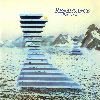RENAISSANCE : PROLOGUE
- Prologue
- Kiev
- Sounds of the Sea
- Spare Some Love
- Bound for Infinity
- Rajah Khan
Label : Sovereign Records
Release Year : 1972
Length : 40:48
Review (AllMusic) : The first album by the '70s (i.e. Annie Haslam) version of Renaissance is a transitional work, rooted in more standard hard rock sounds (including psychedelia) than what followed. One can spot the difference, which may please some listeners and put others off, in the fairly heavy guitar sound of "Prologue," Rob Hendry's electric instrument playing both lead and rhythm parts prominently at various times behind Annie Haslam's soaring vocals and adjacent to John Tout's piano. "Kiev" may also startle some longtime fans, since Haslam doesn't handle the lead vocals, the male members' singing being much more prominent. The ethereal, flowingly lyrical "Sounds of the Sea" is the cut here that most resembles the music that the group became known for in the years ahead, and shows Haslam singing in the high register for which she would become famous. "Spare Some Love," with its prominent folky acoustic guitar, also anticipates material (specifically "Let It Grow" and "On The Frontier") off of the group's better known second album, Ashes Are Burning. "Bound For Infinity" marked the final creative contribution by co-founder Jim McCarty, of the '60s version of Renaissance, and is pretty enough even if it doesn't fit in anywhere with their subsequent sound. And the 11-minute epic "Rajah Khan," with its elements of raga-rock, including sitar-like passages on Hendry's electric guitars and an extended VCS 3 synthesizer solo by Francis Monkman, is a more advanced and virtuoso descendant of late '60s psychedelia. It, too, has little to do with the sound that the group subsequently adopted (although it does intersect, in the most peripheral way, with "Song of Scheherazade" and some of the other Eastern-theme works that preceded it), but the track is entertaining and does show off a startlingly different type of art-rock toward which this group could have gravitated. The sound is clean, and this version of Prologue is to be preferred over Capitol's abortive attempt to reissue it in the late 1980's as In The Beginning, which cut some of the material and had totally lackluster sound.
